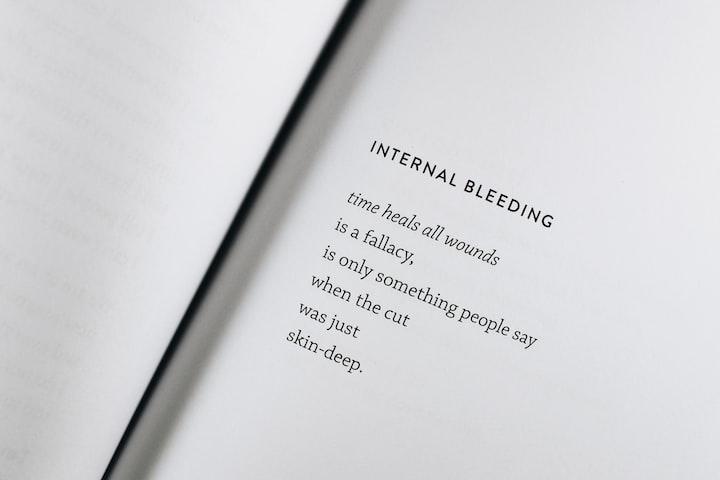There is no one definitive answer to this question as everyone experiences heartbreak differently. However, there are some common symptoms that many people experience when going through a break-up or heartache. These can include feeling sad, lonely, depressed, anxious, and angry. Many people also report having difficulty sleeping and eating as well as feeling constantly tired. It is not uncommon for people to cry a lot or feel like they can’t concentrate on anything else after their heart has been broken. If you are experiencing any of these symptoms, it is important to reach out for help and support from friends or family members. Heartbreak is a difficult experience but you will eventually get through it with time.
Sudden, severe chest pain (angina) a main symptom
When you experience a break-up, it can feel like your heart is literally being ripped in two. The pain can be so intense that it feels like you’re having a heart attack. In fact, many people who experience the sudden, severe chest pain of a break-up actually go to the emergency room thinking they are having a heart attack.
While the pain of a break-up is not physically harmful, it can certainly feel that way. The emotional upheaval of a break-up can trigger all sorts of physical symptoms, including chest pain. When you’re going through the grieving process after a break-up, it’s important to pay attention to your body and get help if you need it.
If you are experiencing chest pain after a break-up, there are several things you can do to ease the discomfort:
• Take some deep breaths: Taking slow, deep breaths can help relax your muscles and reduce the tension in your chest.
• Place something warm on your chest: A heating pad or warm compress can help soothe muscle tension and relax your body.
• Stretch or massage your chest: Gently stretching or massaging your chest muscles can also help relieve tension and pain.
Shortness of breath a main symptom
When you experience a broken heart, it can feel like you can’t breathe. That’s because the emotional pain of a breakup constricts your chest and makes it hard to take in a full breath. You might feel like you’re suffocating or that you can’t get enough air.
This sensation of tightness or pain in your chest is called “sternum pain” or “sternal anguish.” It’s the most common physical symptom of heartbreak. The good news is that it’s usually not a sign of anything serious and will go away with time.
Other physical symptoms of heartbreak include:
-Excessive crying -Insomnia -Loss of appetite or overeating -Headaches or migraines -Fatigue.
Weakening of the left ventricle of your heart a main sign
The weakening of the left ventricle is one of the most common signs of heartbreak. This is because the left ventricle is responsible for pumping blood to the rest of your body. When this muscle weakens, it can no longer pump blood as efficiently, which can lead to a host of problems.
One of the most common symptoms of a weakened left ventricle is shortness of breath. This occurs because the heart is not able to pump enough oxygen-rich blood to your lungs. As a result, you may feel out of breath after just a few minutes of activity.
Another symptom that may occur is fatigue. This happens because your body isn’t getting enough oxygen-rich blood, so you may feel tired even if you’ve had a good night’s sleep. You may also find it difficult to exercise or do other physical activities that you used to enjoy.
If the left ventricle continues to weaken, it can eventually lead to heart failure. Heart failure occurs when your heart can no longer pump enough blood to meet your body’s needs. This can be life-threatening and requires immediate medical attention.
If you think you may be experiencing any symptoms of heartbreak, it’s important to see a doctor right away so they can run some tests and determine what’s causing your symptoms. In many cases, heartbreak can be treated with medication and lifestyle changes such as quitting smoking and exercising more frequently.”
Fluid in your lungs
When you have heartbreak, it can feel like your chest is caving in. Your heart races and your breathing quickens, but somehow you can’t get enough air. In extreme cases, this can lead to a dangerous condition called pulmonary edema, where fluid accumulates in the lungs and makes it difficult to breathe.
The symptoms of pulmonary edema include:
• Shortness of breath (dyspnea)
• Wheezing or coughing
• Rapid breathing (tachypnea) or difficulty catching your breath (air hunger)
• Chest pain or pressure that worsens when lying down or bending over.
Irregular heartbeats (arrhythmias)
Heartbreak can cause irregular heartbeats, or arrhythmias. Arrhythmias are problems with the rate or rhythm of your heartbeat. They can cause your heart to beat too fast, too slowly, or irregularly.
Heartbreak can also cause other symptoms, such as chest pain, shortness of breath, dizziness, and fainting. If you have any of these symptoms, call 911 right away and go to the nearest emergency room.
Low blood pressure (hypotension)
When you have low blood pressure, it means your heart is not pumping blood around your body as efficiently as it should. This can cause a number of symptoms, including:
Dizziness or lightheadedness
Fainting
Nausea
Fatigue
Weakness
Low blood pressure is not usually a serious problem, but it can be a sign of an underlying condition, such as heart disease. If you experience any of the above symptoms, see your doctor to check if you have low blood pressure.
